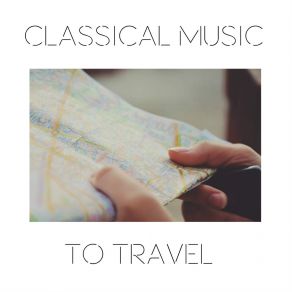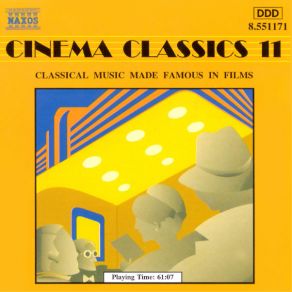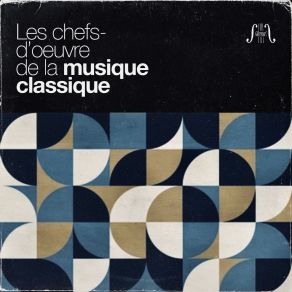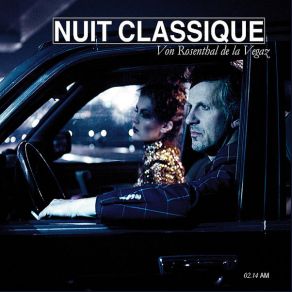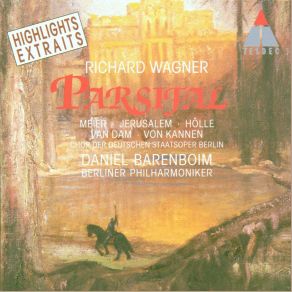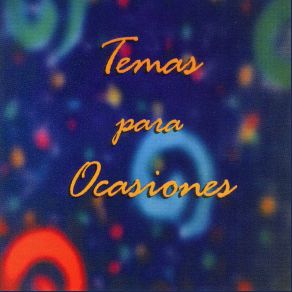Richard Wagner
Wikimp3 information about the music of Richard Wagner. On our website we have 70 albums and 61 collections of artist Richard Wagner. You can find useful information and download songs of this artist.
Biography
[Edit]Richard Wagner was one of the most revolutionary figures in music, and dominated the development of classical music from about 1850 to 1875, a quarter-century, significantly, in which not a single new symphony was produced that entered the permanent standard repertoire. Wagner, like all the composers in this article, was also a "theatre man, " with virtually all his important work being for the operatic stage. He did write a pair of youthful symphonies, an overture, some egregiously cheap commemorative works on commission, a masterly song cycle, and a lovely chamber piece. But his reputation rests only on his operas, and his presence in concert halls consists vitually without exception of overtures, preludes, and other excerpts from his operas. However, his music is so symphonic in nature, that he is the only opera composer whose operatic excerpts you are more likely to encounter at the symphony rather than at vocal recitals. His advances in harmonic thinking, in particular, unalterably changed the language of classical music, and his quest for an operatic form as a seamless drama changed the way that all composers have faced the task of composing opera. He is also one of the most controversial figures in musical history, whose written tracts are full of philsophical meandering. Most controversially in an article in which he attacked Meyerbeer's music, he took a stand against what he called "Hebrew flavor" in music for which he has been judged an anti-Semite. There are writers who argue that he was not anti-Semitic, but the issue has been clouded by the use of Wagner's music and symbolism as part of the mythos of Nazi Germany, and the ardent welcome his heirs gave to Adolf Hitler and Nazi ideas as the Fuhrer's hosts at Wagner's festival theatre in Bayreuth. The Nazi government's use of Wagner was so pervasive that to this day musical organizations in Israel refrain from playing Wagner's music out of respect for the painful associations it recalls to many who survived that era.
Wagner is also symbolic of the notion of heaviness and pretension in opera; the legendary "fat lady" who is supposed to sing to end sporting events is adorned with the breastplate and spear of a Valkyrie, while Wagner's plots themselves lend themselves to parody as no others do.
Sitting down to a mature Wagner opera requires that the listener possess not little patience and listening skills, pay attention to the libretto and the play of "leading motives" (more about that later), and be prepared to devote a great deal of time to listening to the often slowly unfolding pace of the unique world of Richard Wagner's operas. The reason they are considered masterpieces is that they possess a unique psychological power: Wagner can paint a mood or a thought or idea with a shift in harmony or tone color, and with his leading motives can cross reference the flow of a philosophical argument or reveal the secret thoughts of his characters.
Wilhelm Richard Wagner was born on May 22, 1813 to the family of Friederich and Johanna Wagner. Friederich was the police chief of Leipzig, but died in a typhus epidemic in November of that year. In August of 1814 Johanna married Ludwig Geyer, a portrait painter, actor, and poet. After her remarriage, Johanna moved with her son and husband to Dresden, where Wagner was brought up as part of a theatrical family, four of his elder sisters becoming actors. As part of this upbringing in Dresden's theatrical community he was frequently taken to the home of composer Carl Maria von Weber. His stepfather died in 1821 and one of the sisters became the support of the family. Wagner distinguished himself at school, particularly in classical literature. In 1838 the family moved back to Leipzig. There he spent so much time involved in the theatre that his formal school studies suffered. At about this time he was so impressed with Beethoven's symphonies that he decided to become a composer. Although he is often considered to be a self-taught composer, he had considerable training by local professors until 1832. He produced several youthful works and began (but did not complete) an opera called Die Hochzeit (The Wedding). In 1834 he completed Die Feen (The Fairies), which was not performed until after his death.
The first of his operas to be performed was Das Liebesverbot, to a libretto he adapted himself from Shakespeare's Measure for Measure, which was given in Magdeburg in 1836, where, he had become music director to a theatrical company since 1834. He had come there in the first place to pursue an actress, Wilhelmine ("Minna") Planer, whom he married in November, 1836. Because of Wagner's later affairs, she is often pictured as a betrayed wife, but in fact as early as May 1837 she had run off for a while with another man. Wagner, also beset with financial problems, turned to Bulwer Lytton's Rienzi, Last of the Tribunes, which he adapted to a libretto. In 1837 he moved to Riga, Latvia (a territory under Russian rule) to direct the opera there. The Wagners were reconciled during this period, although their financial situation never improved and they ultimately had to sneak out of town a step ahead of creditors. They took passage on a ship which became caught in a powerful North Sea storm; on the same passage he heard the legend of the Flying Dutchman and, hence, received a dual impetus for his first really successful opera.
He completed Rienzi in 1840, and turned immediately to The Flying Dutchman, completing it in1841. He travelled to Dresden, where Rienzi had been accepted for production, passing on the way the historic Wartburg, where his next opera, Tannhauser was set. Rienzi was such a success in Dresden that the opera there immediately accepted Dutchman for production, which also found favor. Seeking a wider audience, he had his two viable operas published as his own personal expense, and then conducted Dutchman in Berlin in 1844. Facing a snipy, big-city press for the first time, Wagner was unprepared for the personal vituperation of some of the critics, and his response set a pattern of aggressive battles with journalists. He also came to believe (not without justification) that as an artist he was far in advance of popular and journalistic understanding.
Meanwhile he completed Tannhauser in 1845 and conducted it in Dresden the same year, revising it in 1847 for a new production. Moving quickly, he began Lohengrin in 1845, completing its full score in 1848.
Wagner had expressed no political interests at all; in fact, his library contained no political writing, but he was swept up in the fervor of the so-called "Revolutionary Year" of 1848 and got involved in an uprising in Dresden in February 1849, so that the government issued an arrest warrant for him. In this mood, be had begun work on what would become The Ring of the Nibelung in November of the preceding year. The composer Franz Liszt assisted in Wagner's escape from what would probably have been a death sentence, and Wagner settled in Switzerland in 1849; Minna joined him reluctantly. Things were not good between them, and for a while Wagner planned an elopement with a young admirer named Jessie Laussot.
While sketching out the text for Siegfried's Death (which the original version of The Ring, a work that Wagner intended to revolutionize musical theatre), he wrote numerous articles and essays about art. Liszt again came to Wagner's aid, directing the premiere of Lohengrin in 1850 in Weimar, keeping Wagner's name before the public and resulting in a great success. Since Liszt expressed an interest in Siegfried's Death, Wagner also began to compose the music for it. He soon realized that it was beyond the resources of any existing theatre, and broke off work. He then turned to the texts, decided that Siegfried's Death needed a preface, so he sketched the text for Young Siegfried. Even then, he perceived the need for a fuller "back story" and developed the idea of a great operatic cycle of operas to tell the entire story of the Rhinegold and the fall of the Norse gods, and continued to procede backwards, completing The Valkyrie and then The Rhinegold. He then revised the initial texts, transforming Young Siegfried into Siegfried and Siegfried's Death into Twilight of the Gods. The whole immense text was completed in 1852, and Wagner turned to composing the music, completed Das Rheingold in 1854.
To tie this immense drama together, Wagner conceived the notion of the "Leading Motive" or "Leitmotif." These were short, pregnant musical ideas which could be developed the same way similar motives are developed in symphonies. These would stand for particular persons, places, things, actions, or ideas. As the action of the drama developed new situations and brought in related events, the motives themselves would be metamorphosed into new forms standing for the new object. Supported by this flowing web of musical ideas, the immense musical structures could unfold organically, with no need for breaking the opera into separate numbered forms as in earlier operas. While there might be differences between more lyrical moments and more recitative-like dramatic or expository passages, the flow of supporting melody could continue seamlessly. Wagner called this "endless melody" and theorized that with this method and other advanced ideas he would create a "Gesamkunstwerk" or "work of total arts" in which everything (drama, acting, music, scenery, and direction) worked together in equal measure.
Meanwhile, he had to eat and borrowed money from a sympathetic neighbor, Otto Wesendonk. He repaid this generosity by falling in love with Wesendonk's wife, Mathilde. This love inspired the writing of the text for an opera on the theme of overwhelming love, Tristan und Isolde. Meanwhile, Wagner proceded on the Ring operas, finshing Die Walkure in 1856. He began to compose Siegfried in 1856. He added to the Tristan text the notion of having his protagonists cross paths with the legendary Sir Parzival in search of the Grail; on Good Friday of 1857 he liberated that knight from the Tristan libretto and began sketching out a text he called Parzival. In August he ceased work on The Ring, and began to compose Tristan und Isolde. That same year he had moved with Minna into a cottage which Herr Wesendonk had reduced the rent on for him. His affair with Frau Wesendonk was proceding apace, and Wagner set five of her love poems to music, now known as Wesendonk Lieder, in which he more or less established the revolutionary new harmonic vocabulary he would use in Tristan, which he began composing in August.
In April 1858 Minna opened and read a letter to Wagner from Mathilde. Although the subject of the letter was interpretation of Goethe, there was enough in it to lead to a permanent rift between the Wagners; Richard left home for good in August of that year. He led a gypsy existence for a while; the Saxon government (which still kept the arrest warrant active thus preventing his return to any German state) even had him hounded out of Venice. He attempted to find success in Paris. He even obtained a royal command from Napoleon III to produce Tannhauser there, and composed a new opening scene for it in recognition of Paris's taste for ballet in opera. This production resulted in near-riots and press hostility, discussed in the portion of this article dealing with the opera itself.
Wagner received a partial amnesty in 1860, which allowed him to attempt a production of Tristan in Vienna; the illness of the tenor forced that to be canceled. At this point, Wagner took up in earnest an idea that had occurred to him in 1845, a comic opera based on the history of the old Master Singers Guild of Nuremburg. By 1864 he was again in Switzerland, this time having escaped creditors in Vienna. But a drastic change of fortune occurred in that same year: King Ludwig II of Bavaria became enamoured of Wagner's works, settled all his debts, and granted him an annual stipend. In return Bavaria gained a valuable property many of Wagner's manuscripts. Importantly, Ludwig backed the premiere of Tristan und Isolde, which was given in Munich under the leadership of Hans von Bulow. Later that year Wagner completed the prose story of Parzival and the full score of Act 2 of Siegfried. Political machinations in his Cabinet forced Ludwig to ask Wagner to leave Bavaria for a while, which Wagner did in December, vowing never to set foot in Munich again. He was house-hunting in southern France when word reached him that Minna had died. He settled in Switzerland, resuming work on Die Meistersinger von Nurmberg. Meanwhile, he had fallen in love with Franz Liszt's daughter Cosima; despite the fact that she was then married to Wagner's greatest conductorial champion Hans von Bulow she bore Wagner two daughters. Wagner completed Meistersinger in October 1867, and Bulow conducted its premiere in Munich the following June with Wagner (who had evidently relented in his anger against the King and Munich) seated in the royal box next to Ludwig.
Later that year, after discussion the matter with her husband, Cosima took the two Wagner daughters (Isolde and Eva) and moved in with Richard in Switzerland in November 1868. In June 1869 their son, Siegfried, was born, who became a talented composer in his own right but whose career was destined to be unjustly impeded by his mother. Von Bulow divorced her in July 1870, and she married Wagner late in August.
Although Wagner had conceived of the Ring as a whole, he permitted premieres of Rhinegold (1869) and Walkure (1870) in Munich. He quarelled with the King over details of the production of Rhinegold and stopped work on Siegfried and did not see the King again for eight years.
Wagner began to seek out a site for the festival in to build a suitable theatre for the Ring and quickly settled on the town of Bayreuth. He spent the first half of the decade of the 1870s obtaining funds (Ludwig, as always, was generous despite Wagner's refusal to see him), getting the festival theatre built, and completing the work on Gotterdammerung and Siegfried. The first integral production of the Ring (during which the premieres of the latter two operas were given) occurred in August 1876 and reviews of it were the first news stories carried by a new trans-Atlantic cable to New York.
Wagner emerged from all this deeper in debt than ever before; a concert series in London which should have met his debts ended up putting him deeper behind due to the inexperience of his agents. Ludwig again bailed Wagner out with a loan which in effect put a lien on 5% of future royalties from all Wagnerian performances in Bavaria.
The Ring safely mounted and being brought out of the world by musicians he trusted, Wagner then turned full attention to Parsifal, as he now re-spelled the title of his opera about the Knights of the Grail. Wagner at this time began suffering angina attacks, and spent considerable time in Italy. Ludwig put the Munich opera forces at Wagner's disposal for Parsifal, which was given its premiere in Bayreuth in July 1882 under the leadership of Hermann Levi. Wagner revised the ticket policies of Bayreuth; even though he established a fund to provide tickets for poorer members of the public (still in existence), he now began to announce a profit, and announced that all his works from Dutchman on would be played there. He announced plans to turn to a series of one-movement symphonies in which he would extend his ideas of continuous motive development, but died in Venice on February 13, 1883 of a heart attack. ~ Joe Stevenson
WORKS OF WAGNER
Complete list of Operas.
Die Hochzeit (unfinished)
Die Feen (1834)
Das Liebesvorbot (1836)
Rienzi, der Letzte der Tribunen (1840, rev. 1843)
Der Fligende Hollander (1841; re-orchestrated 1846 and further revised in 1852 and 1860)
Tannhauser und der Sangerkrieg auf Wartburg
Dresden Version (1845, revised1847)
Paris Version (new act 1 scene 1 and further revisions) (1861)
Final Version (1865, combining aspects of Paris and Dresden versions, with a new transition from the overture to act I composed in 1875)
Lohengrin (1847)
Der Ring des Nibelungen, a trilogy with prologue composed from original text version of 1848 to final completion in 1874.
Das Rhinegold (1854)
Die Walkure (1856)
Siegfried: Act 1 (1857)
Act II (1857; 1864-1865)
Act III (1869-1871)
Tristan und Isolde (1859)
Die Meistersinger von Nurnberg (1867)
Die Gotterdammerung (1869-1874)
Parsifal (1882)
SELECTED ADDITIONAL WORKS:
Overture in C (1832)
Symphony in C (1832)
Symphony in E (1834)
Eine Faust Overture (1840, rev 1855)
Siegfried Idyll (1870)
Five Poems for woman's voice and piano (Wesendonk Lieder) (1862), Rovi
Title: Richard Wagner - Parsifal (CD4)
Artist: Richard Wagner, Christian Thielemann
Genre: Classical
Title: La Antisistema - Single
Artist: Richard Wagner, Antony Z, Cocco Lexa
Genre: Hip Hop/R&B, Rap, Songwriter/Lyricist
Title: Maldigo Conocerte - Single
Artist: Richard Wagner, Cocco Lexa
Genre: Electronica, Hip Hop/R&B, Rap
Title: Twilight Of The Gods: The Ultimate Wagner Ring Collection
Artist: Richard Wagner
Genre: Classical
Title: Wagner: Scenes From The Ring
Artist: Richard Wagner, Plácido Domingo / Placido Domingo, Antonio Pappano
Genre: Classical
Title: Classical Music to Watch the Stars
Artist: Erik Satie, Ludwig Van Beethoven, Franz Schubert, Richard Wagner, Wolfgang Amadeus Mozart, Franz Liszt, Felix Mendelssohn, Camille Saint - Saëns / Camille Saint - Saens, Frédéric Chopin / Frederic Chopin, Robert Schumann, Johann Sebastian Bach, Philip Glass, Maurice Ravel, Musique Classique
Genre: Classical
Title: Nobody Alive - Single
Artist: Richard Wagner, Kursiva
Genre: Electronica, Dancefloor, Dance Pop
Title: Wagner: Der Ring des Nibelungen
Artist: Richard Wagner, Fritz Uhl, Ruth Hesse, Czech Philharmonic Orchestra, Prague National Theatre Orchestra, Gerald McKee, Ursula Boese, (Unknown Artist), Rudolf Knoll, Hans Swarowsky, Herold Kraus, Otto Von Rohr, Margit Kobeck, Siw Ericsdotter, Rolf Polke, Nadezda Kniplova, Bella Jasper, Erica Schubert, Rolf Kühne / Rolf Kuhne, Okamura Takao, Heidemaria Ferch, Ditha Sommer, Liselotte Becker-Egner, Angelika Berger, Hilde Rosner, Herbert Doussant, Hilde Roser, Ingrid Goritz
Genre: Opera
Collections
Title: With This Ring...Forever I Do
Genre: Pop
Title: Opera - Songs of Love
Genre: Opera
Title: Greatest Classical Music in Movies
Genre: World Music
Title: Cinema Classics 11
Genre:
Title: Captain America
Genre: Rock
Title: Musica Para Tu Boda; Volumen 1
Genre: Latin
Title: The Best of Classical Music: Marches
Genre: Hip Hop/R&B, Soul, Instrumental
Title: Bandas Sonoras Originales CD1
Genre: Pop, Theatre/Soundtrack
Title: Castle (Season 1) (Original Soundtrack)
Genre: Pop Rock, Theatre/Soundtrack
Title: 100 Greatest Classics Vol 2
Genre: Classical
Title: 100 Film Classics (CD3)
Genre: Electronica, Soul, Jazz, Latin, Pop, Theatre/Soundtrack
Title: Beatport Top 100 May 2014 (Dubstep)
Genre: Electronica, House, Trance, Techno, Drum & Bass, Club/Dance, Dubstep
Title: Grimm (Unofficial Soundtrack) (Season 2)
Genre: Theatre/Soundtrack
Title: Grimm (Unofficial Soundtrack) (Season 3)
Genre: Theatre/Soundtrack
Title: In Classical Mood: Morning Mists
Genre: Classical
Title: Beroemde Operakoren - Vol. 2
Title: Classical Music For 2015!
Genre: Instrumental, Classical
Title: Best Classics 100, Volume 2
Genre: Classical
Title: 100 Best Opera Classics
Genre: Classical
Title: In Classical Mood: Sounds Of The Sea
Genre: Classical
Title: In Classical Mood: Forces Of Nature
Genre: Classical
Title: In Classical Mood: In Celebration
Genre: Classical
Title: In Classical Mood: Passion
Genre: Classical
Title: In Classical Mood: Great Overtures
Genre: Classical
Title: In Classical Mood: Twilight
Genre: Classical
Title: 400 Years Of The Opera Vol. 1
Genre: Classical
Title: 101 Classical (CD4)
Title: 101 Classical (CD5)
Title: 101 Classical (CD6)
Title: Gold Classic Music Vol. 2 (CD2)
Genre: Classical
Title: 101 Film Classics 2016 (CD4)
Genre: Theatre/Soundtrack
Title: Majestic Drum And Bass Vol. 07 (CD1)
Genre: Drum & Bass
Title: Klara Top 100 (CD9)
Genre: Classical
Title: Focus With Brahms & Liszt (CD6)
Genre: Classical
Title: Autumnal Liszt (CD2)
Genre: Classical
Title: The Power Of Liszt (CD2)
Genre: Classical
Title: Relaxed Holidays With Liszt (CD2)
Genre: Classical
Title: 100 Chefs-D'Oeuvre De La Musique Classique 5
Genre: Classical
Title: The 50 Greatest Pieces Of Classical Music
Genre: Classical
Title: Top 50 Classical Music 2024
Genre: Classical
Featuring albums
Title: Wagner: Parsifal (Highlights)
Artist: Berliner Philharmoniker, Chor Der Deutschen Oper Berlin, Daniel Barenboim
Genre: Opera
Title: Wagner: Die Meistersinger von Nürnberg / Wagner: Die Meistersinger von Nurnberg
Artist: Franz Winter
Genre:
Title: Gramophone and Typewriter Company (G & T) Recordings 1903-1909 Volume 2
Artist: Fernando De Lucia
Genre: Opera
Title: Classic Moments, Vol. 2 (Best of Classic Meets Lounge)
Artist: The Classic Moments Orchestra
Genre: World Music
Title: Listen, Learn & Grow: Imagination
Artist: Various Artists
Genre: Kids, Theatre/Soundtrack, Classical
Title: Wagner: Der Ring des Nibelungen
Artist: Staatskapelle Dresden, Marek Janowski
Title: Singers Of The Century: Marcel Wittrisch In Opera Arias & Scenes (CD3)
Artist: Marcel Wittrisch
Genre: Classical
Title: Singers Of The Century: Paul Schöffler
Artist: Paul Schöffler / Paul Schoffler
Genre: Classical

























































